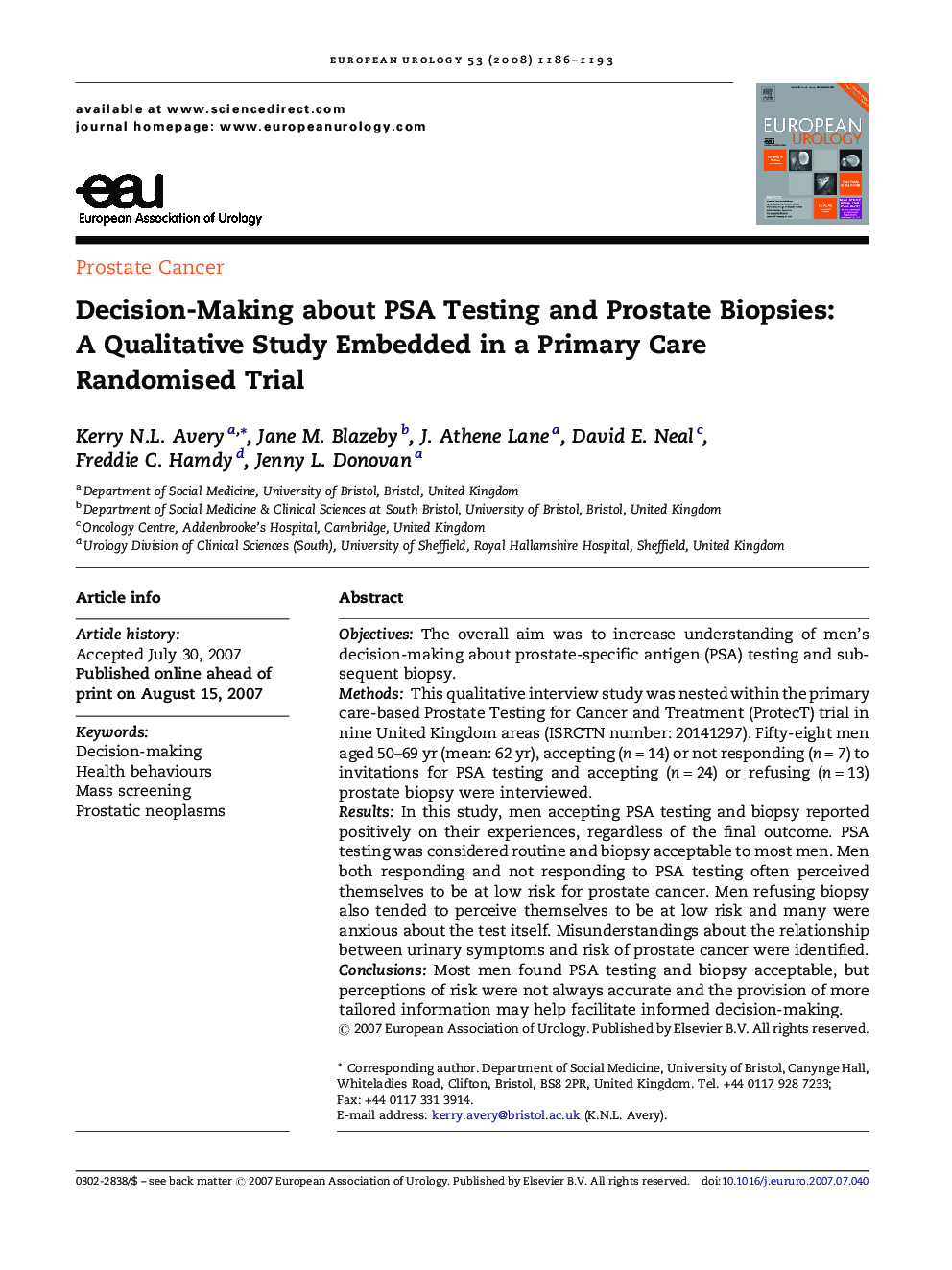| Article ID | Journal | Published Year | Pages | File Type |
|---|---|---|---|---|
| 3927456 | European Urology | 2008 | 8 Pages |
ObjectivesThe overall aim was to increase understanding of men's decision-making about prostate-specific antigen (PSA) testing and subsequent biopsy.MethodsThis qualitative interview study was nested within the primary care-based Prostate Testing for Cancer and Treatment (ProtecT) trial in nine United Kingdom areas (ISRCTN number: 20141297). Fifty-eight men aged 50–69 yr (mean: 62 yr), accepting (n = 14) or not responding (n = 7) to invitations for PSA testing and accepting (n = 24) or refusing (n = 13) prostate biopsy were interviewed.ResultsIn this study, men accepting PSA testing and biopsy reported positively on their experiences, regardless of the final outcome. PSA testing was considered routine and biopsy acceptable to most men. Men both responding and not responding to PSA testing often perceived themselves to be at low risk for prostate cancer. Men refusing biopsy also tended to perceive themselves to be at low risk and many were anxious about the test itself. Misunderstandings about the relationship between urinary symptoms and risk of prostate cancer were identified.ConclusionsMost men found PSA testing and biopsy acceptable, but perceptions of risk were not always accurate and the provision of more tailored information may help facilitate informed decision-making.
